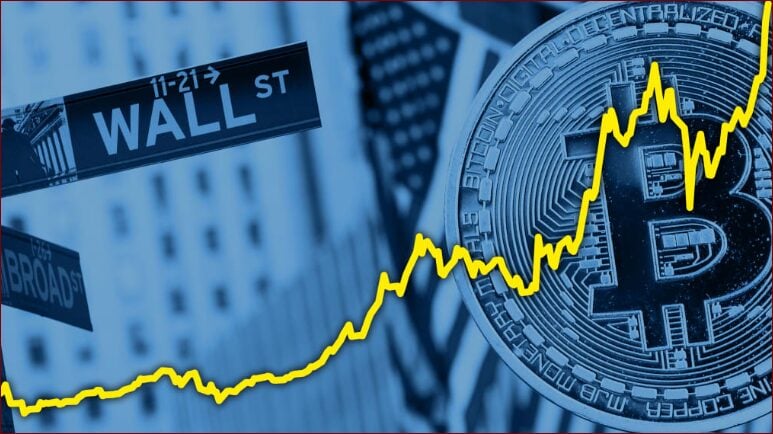ARTICLE AD BOX

- Coinbase Research reveals a 50% correlation between crypto and stock markets, driven by global monetary easing policies.
- Ethereum outperforms Bitcoin amid rising correlation, while Layer 0, gaming, and scaling solutions see strong investor interest.
Recent data from Coinbase Research exposes a significant change in the crypto market: as of September 2024, the link between crypto and stock markets is hovering around 50% and shows a historically unprecedented highest point.
Global monetary easing programs in China and the US mostly fuel this closer link between the two financial environments. Such economic policies have not only made these markets more linked but also indicated possible opportunities and difficulties for investors negotiating these entwined financial sectors.
Particularly considering that Bitcoin skyrocketed beyond the $64,000 mark and other crypto-related equities, such as Coinbase (COIN) and MicroStrategy (MSTR), the synchronization between crypto and stocks marks a notable change.
How Crypto Events and Federal Policies Are Shaping Market Correlations
Some significant events in the crypto sector, including the Solana Breakpoint conference in Singapore and the TOKEN2049 event in Singapore, follow this growing link.
These developments coincided with the Federal Reserve’s aggressive interest rate policy strategy, whereby a 50-basis-point rate decrease caused favorable responses in the stock and crypto markets.
US market futures and crypto values so rose in unison as many US stocks reached unprecedented highs. Bloomberg statistics confirmed this trend by indicating that the 40-day correlation coefficient between the top 100 cryptocurrencies and the S&P 500 had increased to 0.67.
At 0.72, the last time this coefficient reached such high levels, it indicates that traditional and crypto finance have grown ever more entwined.
Co-founder of Orbit Markets Caroline Mauron clarified the macroeconomic causes behind this tendency. She underlined that because the Federal Reserve keeps its easing cycle, these macro factors are currently guiding crypto values and would probably keep doing so.
This represents a major change from the past since cryptocurrencies mostly functioned free from traditional financial markets. The crypto market is becoming more reactive to world economic policies as its sensitivity to more general macroeconomic conditions develops.
Ethereum Outpaces Bitcoin as Investors Explore New Opportunities
With an 8% increase over Bitcoin in the week after the Federal Reserve’s decision, Ethereum has notably outpaced Bitcoin among this rising correlation. Reflecting the changing characteristics of the crypto market, this movement suggests a growing curiosity in altcoins among investors.
Still, Ethereum’s recent success raises certain questions. The recent 100 ETH sale by the Ethereum Foundation, which helps to explain their overall 3,566 ETH sales this year, begs issues regarding the possible influence on market mood and the wider Ethereum ecosystem.
Furthermore, shining performers with growth of 9%, 17%, and 11%, respectively, over the past week are Layer 0, gaming, and scaling solutions. These events show that investors are looking at prospects in other crypto assets that have proven durability and growth potential, therefore expanding their interests outside Bitcoin and Ethereum.
October, a month generally favorable for cryptocurrencies, is approaching, and the market is getting ready for maybe significant performance.
Given that Bitcoin has exhibited a positive increase in eight of the past 10 Octobers, there is conjecture that this tendency may persist, especially with the current rise in institutional involvement.
.png)
 1 month ago
2
1 month ago
2








 English (US)
English (US)